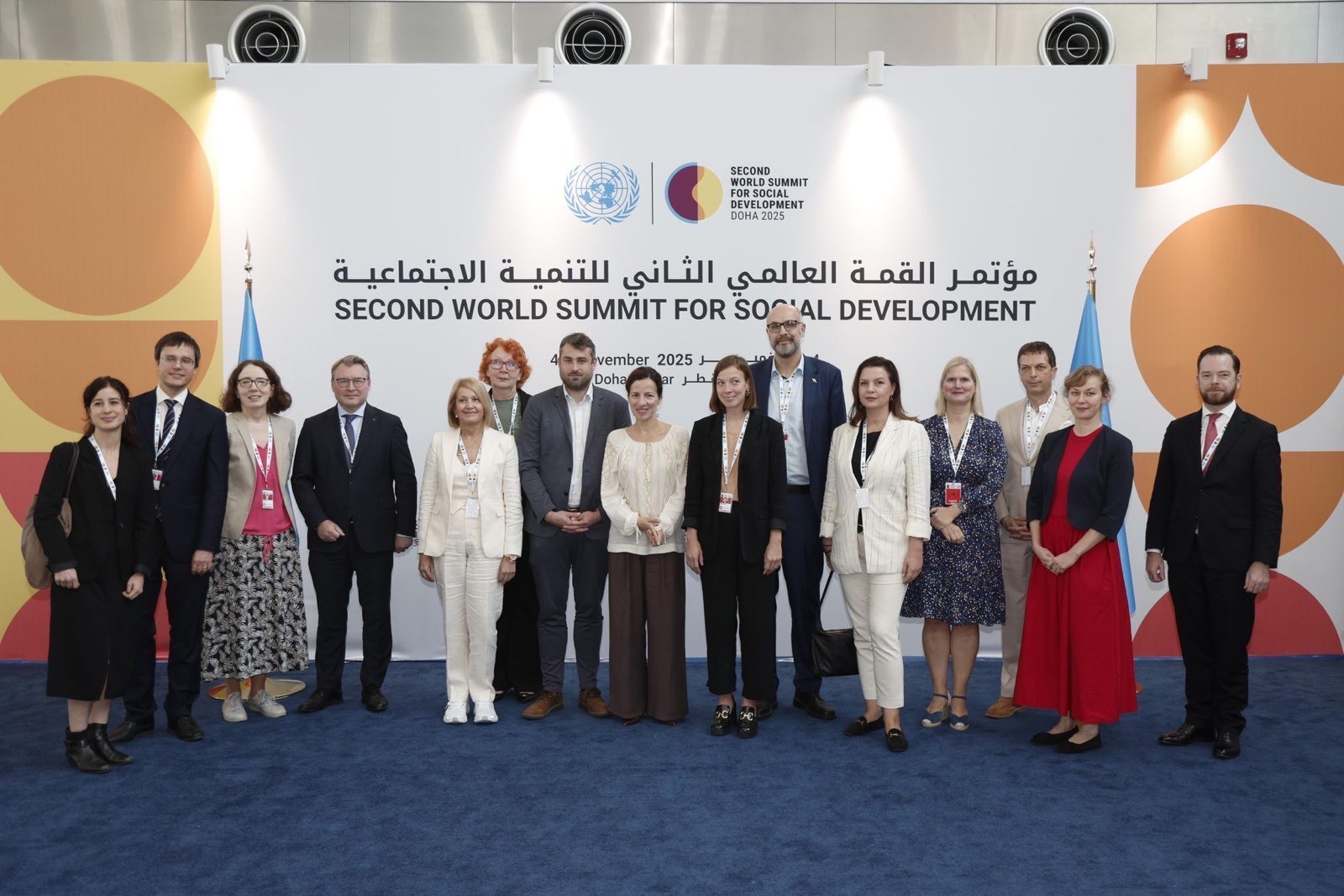The Vice-President of the Bulgarian Industrial Association Maria Mincheva, in her capacity as a member and vice-chair of the Employers' Group of the European Economic and Social Committee (EESC), took part in the Second World Meeting on Social Development, held on 4-6 November 2025 in Doha, Qatar, as part of the official delegation of the European Union.
The event was inaugurated by the President of the United Nations General Assembly – H.E. Annalena Baerbock – and UN Secretary-General António Guterres. The event was attended by heads of state or government, ministers of labour, finance, social policy and education, heads of UN agencies, representatives of the G77, the European Union, UN regional committees, leading employers' and business organizations, as well as social partners from all regions of the world.
The meeting is the culmination of the "Road to Doha" process, through which the UN updated the global framework for social development three decades after the adoption of the Copenhagen Declaration.
The specific objectives of the Doha Declaration
The adopted Declaration outlines four key global goals valid until 2030:
1. Reducing poverty and inequalities
- strengthening social protection systems and basic services;
- addressing regional and structural inequalities.
2. Full, productive and decent employment
- Expanding quality jobs;
- Promoting sustainable business models;
- Ensuring safe and fair working conditions.
3. Social integration and equal opportunities
- removal of barriers to participation in the labour market;
- integration of vulnerable groups
- young people, people with disabilities, women and migrants;
- active involvement of social partners.
4. Sustainable economic development
- support for innovation, technological development and green transformation;
- strong link with the UN Sustainable Development Goals;
- Improving economic sustainability and productivity.
Text of the Declaration: https://social.desa.un.org/sites/default/files/documents/2025/n2525932.pdf
The declaration also underlines the central role of the private sector in achieving sustainable economic and social progress.
Among the most important highlights for business are:
1. Productivity, innovation and competitiveness
The UN calls for policies that promote:
- modernisation and deployment of technologies;
- innovation and digital transformation;
- active support for small and medium-sized enterprises.
2. Skills of the future and lifelong learning
Emphasis on cooperation between business, educational institutions and the state for the development of:
- digital skills;
- green skills;
- entrepreneurial and adaptive competences.
Employers are identified as strategic partners in the processes of reskilling and upgrading the workforce.
3. Improve the business environment
Actions are recommended to:
- facilitate entrepreneurship;
- stimulate innovation;
- improve the regulatory framework.
4. Transition from an informal to a formal economy
Emphasis is placed on:
- strengthening institutions;
- effective regulatory measures;
- incentives and support for enterprises in creating stable and quality employment.
5. Strategic role of the private sector
The Declaration recognises employers' organisations as key partners in:
- the development of sustainable labour markets;
- digitalisation and innovation;
- social dialogue at national and international level.
Private Sector Forum – The Role of Business in Global Development
In parallel with the meeting, a Private Sector Forum was held, organized by the UN Global Compact, in partnership with the UN Department of Economic and Social Affairs, the International Organization of Employers and other structures of the UN system.
The forum brought together heads of international companies, representatives of employers' organizations, UN experts, international investors, financial institutions and government representatives.
The main topics included:
- the contribution of business to the digital transition;
- future skills and transformations in the labour market;
- innovation, artificial intelligence and sustainable business models;
- partnerships between companies, countries and the UN.
The forum stressed that without the active participation of business, the global goals of employment, productivity and social development cannot be achieved.
Program of the Forum: https://events.unglobalcompact.org/WorldSocialSummitPrivateSectorForum






